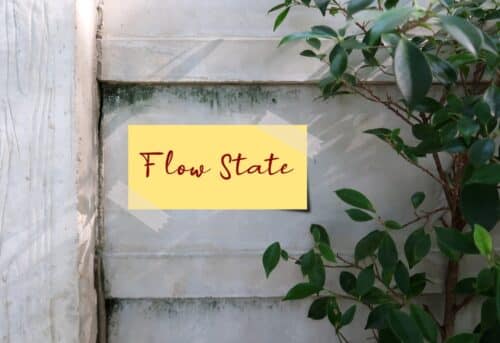 Finding Lasting Happiness
Finding Lasting Happiness
We constantly feel that we are chasing a sense of happiness but that it remains fleeting. We may experience happiness when, for example, we achieve a specific goal, or acquire some desired item. But the feeling doesn’t seem to last. Seen we identify another goal to strive for, or return to the Amazon catalog seeking an even more enticing (and expensive) item. Fleeting experiences and material items, though satisfying at the time, do not bring long-lasting happiness. We live in a perpetual loop of yearning for something better and looking toward the next best thing. Depending on external sources for our happiness impedes any attempt to search inside ourselves for it. One way to overcome this, is experiencing happiness through flow state.
What is “Flow State”?
Mihaly Csikszentmihalyi, the author of Flow: The Psychology of Optimal Experience, surveyed people across various age groups, cultures, and locations to identify the happiest moments of their lives. In the survey, Csikszentmihalyi notes that many people experienced happiness when they were completely immersed in an activity that required sustained effort and attention. This is characterized as a “flow state.” A flow state provides the conditions under which people can be productive and find enjoyment and meaning in their lives.
“Control of consciousness determines the quality of life.”
Csikszentmihalyi, Flow: The Psychology of Optimal Experience
Experiencing Happiness Through Flow: pleasure vs. happiness
Research has shown that flow activities provide a person with lasting happiness while material rewards, or pleasures, do not. It is essential to understand the distinction between pleasure and happiness. Pleasure is temporary. It includes sleep, food, sex, entertainment, vacations, shopping, and resting. Csikszentmihalyi notes that pleasure is “an important component of the quality of life, but by itself does not bring us happiness.”
Meanwhile, lasting happiness comes from fulfilling activities that require focus and intent. Focus and intent provide a disciplined intellectual framework within which you can grow and achieve something challenging. And in which you can engage your flow state.
“It is when we act freely, for the sake of the action itself rather than for ulterior motives, that we learn to become more than what we were.”
Csikszentmihalyi, Flow: The Psychology of Optimal Experience
 The Four Conditions to Achieve Flow:
The Four Conditions to Achieve Flow:
- Perform an activity with clear goals and rules
- Choose an activity that requires skill to complete
- Your skills must match the challenge (it should not be too easy or too difficult)
- You must have clear goals and clear feedback on progress
To attain a flow state, the activity that you are engaged in must have clear goals, require skill to achieve, and must provide feedback on progress/performance To maintain the flow state the challenges must be continually adjusted to reflect your improving skills. You do not want something too simple (you’ll get bored) or something too challenging (you’ll want to give up).
What Does Flow Feel Like?
Flow “push[es] the person to higher levels of performance, and lead(s) to previously undreamed-of states of consciousness.” Happiness and satisfaction are achieved through feeling challenged and experiencing growth in a flow state. It feels satisfying to be immersed in something that offers achievable goals because we can track our growth and progress. In other words, there is a strong sense of personal growth and achievement when maintaining flow states because we are continuing to build our skills for a lifetime. We can cultivate meaning in our daily lives by participating in activities that are suited to our skills and aligned with our larger purpose.
Csikszentmihalyi identified four feelings that a person experiences when in a flow state:
- You are completely absorbed in your activity
- You lose a sense of control
- You lose self-consciousness, but still, feel a strong sense of self
- You lose track of time
Creating Flow States
Through practice, we can cultivate flow states to optimize almost every situation. One example of this can be your job. Turning your work day into a flow activity involves setting goals for yourself that feel both absorbing and slightly difficult. To attain inner satisfaction, you can create engaging and mentally stimulating challenges. The principle of this idea is that our external circumstances are continuously changing, but our minds are constant. Creating flow states in the mundane day-to-day is a way to control our subjective experience to feel more engaged and present.
“People who learn to control inner experience will be able to determine the quality of their lives, which is as close as any of us can come to being happy.”
Csikszentmihalyi, Flow: The Psychology of Optimal Experience
Contact us today to schedule a complimentary 15-minute phone consultation or to book an appointment.

